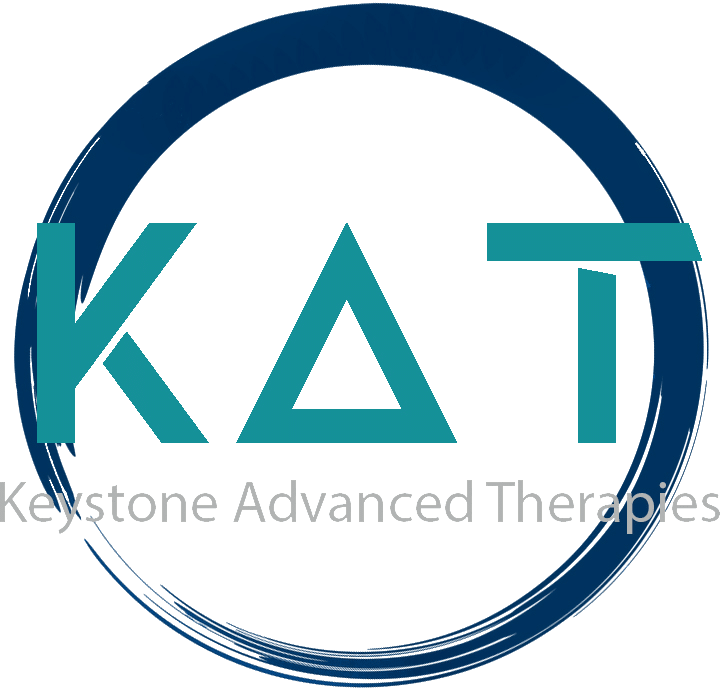UNLOCKING HOPE – UNDERSTANDING KETAMINE THERAPY IN PENNSYLVANIA
In Pennsylvania, a glimmer of hope shines through the shadows of despair as innovative therapy offers a potential breakthrough for individuals grappling with mental health disorders. Ketamine therapy, a unique and rapidly emerging treatment, is paving the way for renewed possibilities in mental health care. This groundbreaking therapy, designed to help individuals with treatment-resistant depression and other psychiatric conditions and painful neuropathic conditions, is gaining recognition for its effectiveness and transformative impact. By gaining a deeper understanding of ketamine therapy, Pennsylvania residents can unlock a newfound sense of hope and restore their quality of life. With increasing scientific evidence and testimonies from patients, the positive results are hard to ignore. This article aims to shed light on the benefits, process, and availability of ketamine therapy in Pennsylvania. Whether you or a loved one are seeking new avenues of healing or simply curious about the potential of this therapy, this comprehensive guide will provide the insight you need. Embark on this journey with us as we explore the world of ketamine therapy, uncovering the science behind its success and delving into the transformative experiences of those who have embraced this innovative treatment modality. Together, let us open the door to hope and understanding in Pennsylvania.
The Science Behind Ketamine Therapy
Ketamine, once primarily known as an anesthetic and recreational drug, has emerged as a groundbreaking treatment option for various mental health disorders. The unique mechanism of action of ketamine sets it apart from traditional antidepressants and has sparked a revolution in the field of psychiatry.
At the core of ketamine’s therapeutic potential lies its ability to interact with the N-methyl-D-aspartate (NMDA) receptor, a crucial component in the regulation of glutamate, a neurotransmitter essential for brain function. Ketamine’s binding to the NMDA receptor triggers a cascade of events that ultimately lead to the rapid and sustained alleviation of depression, anxiety, and other mental health conditions.
Unlike conventional antidepressants, which typically take weeks or even months to take effect, ketamine therapy has been shown to produce a rapid and robust response, often within hours or days of administration. This rapid onset of action is attributed to ketamine’s ability to stimulate the growth and formation of new neural connections, a process known as neuroplasticity. By enhancing neuroplasticity, ketamine therapy helps the brain adapt and rewire itself, addressing the underlying neurological imbalances that contribute to mental health disorders.
The science behind ketamine therapy is further bolstered by extensive research and clinical trials. Studies have consistently demonstrated the efficacy of ketamine in treating a wide range of mental health conditions, including treatment-resistant depression, bipolar disorder, post-traumatic stress disorder (PTSD), and chronic pain. These findings have led to a growing recognition of ketamine as a viable and transformative treatment option, particularly for individuals who have not responded well to traditional therapies.
As the scientific understanding of ketamine’s mechanisms continues to evolve, researchers are also exploring the potential of related compounds, such as esketamine, a derivative of ketamine. These advancements in the field of ketamine-based therapies hold promise for even more targeted and personalized approaches to mental health care, further expanding the possibilities for individuals seeking new avenues of healing.
Conditions Treated with Ketamine Therapy
Ketamine therapy has emerged as a versatile and promising treatment option for a variety of mental health conditions, offering hope to individuals who have struggled with traditional therapies.
One of the primary applications of ketamine therapy is in the treatment of treatment-resistant depression (TRD). TRD is a debilitating condition characterized by persistent depressive symptoms that do not respond to conventional antidepressant medications. Ketamine’s unique mechanism of action, targeting the NMDA receptor, has been shown to provide rapid and effective relief for individuals with TRD, often within hours or days of administration.
Beyond depression, ketamine therapy has also demonstrated efficacy in addressing other mental health disorders, such as bipolar disorder. Individuals with bipolar disorder experience fluctuating moods, ranging from manic episodes to severe depressive states. Ketamine’s ability to stabilize mood and alleviate both depressive and manic symptoms has made it a promising treatment option for this complex condition.
Another area where ketamine therapy has shown promise is in the treatment of post-traumatic stress disorder (PTSD). PTSD is a debilitating condition that can develop after experiencing or witnessing a traumatic event. Ketamine’s potential to reduce the intensity of traumatic memories and promote emotional regulation has made it a valuable tool in the management of PTSD symptoms.
Chronic pain conditions, often comorbid with mental health disorders, have also been targeted by ketamine therapy. Conditions such as fibromyalgia, complex regional pain syndrome, and neuropathic pain have been shown to benefit from ketamine’s ability to modulate pain perception and reduce inflammation.
Importantly, ketamine therapy is not limited to these specific conditions. Ongoing research and clinical trials are exploring the potential of ketamine in treating a wide range of mental health and neurological disorders, including obsessive-compulsive disorder (OCD), addiction, and even certain neurological conditions like Parkinson’s disease. As the scientific understanding of ketamine’s therapeutic applications continues to expand, the scope of its clinical applications is likely to grow, offering hope to an ever-widening range of individuals seeking relief.
Benefits of Ketamine Therapy
Ketamine therapy has emerged as a game-changer in the field of mental health treatment, offering a multitude of benefits that set it apart from traditional therapies.
One of the most remarkable advantages of ketamine therapy is its rapid onset of action. Unlike conventional antidepressants, which can take weeks or even months to take effect, ketamine has been shown to provide relief from symptoms within hours or days of administration. This rapid response can be particularly valuable for individuals experiencing acute suicidal ideation or severe depressive episodes, providing a lifeline when traditional therapies have failed.
In addition to its rapid action, ketamine therapy has demonstrated sustained effects, with many patients reporting prolonged periods of improved mood and reduced symptoms. This long-lasting benefit is a significant departure from the often short-lived relief provided by traditional antidepressants, which can require ongoing and indefinite treatment.
Ketamine therapy’s unique mechanism of action, targeting the NMDA receptor and promoting neuroplasticity, sets it apart from conventional psychiatric medications. By stimulating the growth and formation of new neural connections, ketamine therapy has the potential to address the underlying neurological imbalances that contribute to mental health disorders, rather than simply masking the symptoms.
Another notable benefit of ketamine therapy is its ability to treat a wide range of mental health conditions, including treatment-resistant depression, bipolar disorder, PTSD, and chronic neuropathic pain. This versatility allows for a more personalized and tailored approach to mental health care, catering to the unique needs and challenges of each individual.
Ketamine therapy also offers the potential for reduced side effects compared to traditional psychiatric medications. While not entirely devoid of side effects, ketamine’s therapeutic profile often includes a lower risk of the severe and debilitating side effects commonly associated with antidepressants, such as weight gain, sexual dysfunction, and cognitive impairment.
Perhaps most importantly, ketamine therapy provides a glimmer of hope for individuals who have exhausted other treatment options. For those struggling with treatment-resistant mental health conditions, ketamine offers a transformative alternative that can potentially restore their quality of life and rekindle their sense of purpose and well-being.
Ketamine Therapy Process and Administration
The process of ketamine therapy involves a carefully structured and monitored approach to ensure the safety and effectiveness of the treatment.
The initial step in the ketamine therapy process typically involves a comprehensive evaluation by a licensed healthcare provider trained in ketamine therapy.. This assessment helps determine the individual’s suitability for the treatment, taking into account their medical history, current symptoms, and any underlying conditions.
Once the assessment is complete and the individual is deemed a suitable candidate for ketamine therapy, the treatment plan is customized to their specific needs. This may involve determining the appropriate dosage, route of administration, and frequency of treatments.
Ketamine can be administered through various routes, including intravenous (IV) infusion, intramuscular (IM) injection, or intranasal (IN) administration. The most common method is IV infusion, which allows for a controlled and gradual delivery of the medication, ensuring a consistent and predictable therapeutic response.
During the ketamine therapy session, the individual is closely monitored by a team of healthcare professionals . This ensures the individual’s safety and comfort throughout the treatment. The session typically lasts between 40 to 60 minutes, with the individual experiencing a dissociative or “out-of-body” sensation as the ketamine takes effect.
After the initial infusion, the individual is closely monitored and assessed for any adverse effects or reactions. In some cases, individuals may require additional sessions or a series of treatments to achieve the desired therapeutic outcome. The frequency and duration of the treatment plan are tailored to the individual’s response and progress.
It is important to note that ketamine therapy is a collaborative process between the individual and their healthcare providers. Regular communication, monitoring, and adjustments to the treatment plan are crucial to ensure the best possible outcomes. Individuals are also encouraged to engage in supportive therapies, such as psychotherapy, to complement the effects of ketamine and promote long-term mental health improvements.
Finding a Ketamine Therapy Provider in Pennsylvania
As the demand for ketamine therapy continues to grow in Pennsylvania, individuals seeking this innovative treatment option have a range of resources available to them. We suggest looking for providers with the longest experience practicing ketamine therapy and the highest number of infusions performed. This allows for fine-tuning of care, which can make a world of difference to a scared patient.
One of the primary avenues for finding a ketamine therapy provider in Pennsylvania is through referrals from primary care physicians or mental health professionals. These healthcare providers often have established relationships with specialized clinics or practitioners who offer ketamine therapy, and they can provide valuable guidance and recommendations.
Alternatively, individuals can take a more proactive approach and search for ketamine therapy providers directly. These facilities often have dedicated ketamine therapy programs, with experienced and licensed professionals overseeing the administration and monitoring of the treatments.
Online directories and databases can also be valuable resources for locating ketamine therapy providers in Pennsylvania. Websites such as the American Society of Ketamine Physicians (ASKP) and the Ketamine Advocacy Network maintain listings of certified ketamine therapy providers, including their locations, specialties, and contact information.
When researching and evaluating potential ketamine therapy providers in Pennsylvania, it is essential to consider several key factors. These include the provider’s qualifications, experience, and track record in administering ketamine therapy, as well as the clinic’s safety protocols and patient-centered approach. It is also important to ensure that the provider is licensed and accredited in the state of Pennsylvania.
Individuals may also want to inquire about the provider’s approach to patient education and the level of support offered throughout the treatment process. Effective ketamine therapy requires a collaborative effort between the provider and the patient, so finding a provider who prioritizes open communication and individualized care is crucial.
By taking the time to research and vet potential ketamine therapy providers in Pennsylvania, individuals can feel confident in their choice and take the first step towards unlocking the transformative potential of this innovative treatment.
Success Stories and Testimonials of Ketamine Therapy in Pennsylvania
As the awareness and adoption of ketamine therapy continue to grow in Pennsylvania, a growing number of individuals have shared their inspiring stories of transformation and renewed hope.
One such individual is Marialena, a 42-year-old woman who had been struggling with treatment-resistant depression for over a decade. “There is no cure for depression or anxiety, but this is damn near a cure,” she said. “I felt relief after my first infusion, and after completing the full course, I have made more breakthroughs than in 20 years of therapy.”
After undergoing a series of ketamine infusions, Layla is effusive in her praise. “The staff is friendly and knowledgeable, and I felt very much taken care of in this safe space. I am grateful for this service and highly recommend it to anyone who could benefit.” Layla now reports feeling more engaged, motivated, and hopeful than she has in years, allowing her to reconnect with her loved ones and pursue her personal goals.
Another inspiring story comes from Jabe, a 48-year-old veteran struggling with lifelong depression and PTSD after a traumatic deployment. “Ketamine has removed my lifelong depression and PTSD,” he says. “At this point, I do not need regular treatments and have no need for medications. It was truly amazing how I felt after my first IV treatment.”
These stories are just a glimpse into the transformative power of ketamine therapy in Pennsylvania. Across the state, individuals with a wide range of mental health conditions have found renewed hope and a path to healing through this innovative treatment approach.
As the testimonials and success stories continue to emerge, the impact of ketamine therapy on the lives of Pennsylvanians is becoming increasingly clear. These accounts serve as a testament to the life-changing potential of this treatment, inspiring others to explore this groundbreaking option and take the first steps towards a brighter future.
Potential Side Effects and Risks of Ketamine Therapy
While the benefits of ketamine therapy have been widely documented, it is essential to understand the potential side effects and risks associated with this innovative treatment approach.
One of the most commonly reported side effects of ketamine therapy is the dissociative or “out-of-body” experience that individuals may experience during the infusion or administration. This altered state of consciousness, while a key part of the therapeutic process, can be unsettling for some individuals and may require proper preparation and support from the healthcare team.
Other potential side effects of ketamine therapy include nausea, dizziness, and temporary increases in blood pressure and heart rate. These side effects are typically mild and transient, resolving shortly after the completion of the treatment session.
In rare cases, individuals may experience more severe side effects, such as hallucinations, confusion, or disorientation. These adverse reactions are more common in individuals with underlying medical conditions or those who do not disclose their full medical history.
It is important to note that ketamine therapy is not suitable for all individuals, and healthcare providers must carefully assess each patient’s medical history and current health status to ensure the safety and appropriateness of the treatment.
Individuals with a history of psychosis, uncontrolled hypertension, or certain cardiovascular conditions may be at a higher risk of experiencing adverse effects from ketamine therapy. In such cases, the healthcare provider may recommend alternative treatment options or a modified approach to minimize the potential risks.
To mitigate the risks associated with ketamine therapy, it is crucial for individuals to work closely with their healthcare providers, disclose any relevant medical information, and follow the treatment plan and recommendations carefully. Ongoing monitoring and communication during the treatment process are essential to ensure the safety and well-being of the patient.
While the potential side effects and risks of ketamine therapy should not be overlooked, the growing body of research and the transformative experiences of many individuals have demonstrated the overall safety and efficacy of this innovative treatment approach. By understanding and managing the potential risks, individuals in Pennsylvania can make informed decisions and unlock the hope and healing that ketamine therapy can provide.
The Future of Ketamine Therapy in Pennsylvania
As the use of ketamine therapy continues to gain momentum in Pennsylvania, the future of this innovative treatment approach holds immense promise and potential.
One of the most exciting developments in the field of ketamine therapy is the ongoing research and clinical trials exploring the use of related compounds, such as esketamine, a derivative of ketamine. These compounds have shown promising results in the treatment of various mental health conditions, offering the potential for even more targeted and personalized approaches to care.
In addition to the exploration of new compounds, researchers and healthcare providers in Pennsylvania are also delving deeper into the mechanisms of action behind ketamine therapy. By better understanding how ketamine interacts with the brain and the neurological processes it influences, they can refine and optimize the treatment protocols to enhance the therapeutic outcomes for individuals.
Another area of focus for the future of ketamine therapy in Pennsylvania is the expansion of access and availability. As more healthcare providers and clinics in the state adopt this treatment modality, individuals across Pennsylvania will have greater opportunities to explore this innovative option for their mental health and well-being.
Alongside the increased accessibility, efforts are also underway to improve the integration of ketamine therapy into the broader mental health care system. By fostering collaborations between ketamine therapy providers, primary care physicians, and mental health professionals, a more comprehensive and coordinated approach to patient care can be achieved.
As the field of ketamine therapy continues to evolve, the potential for its integration with other therapeutic modalities, such as psychotherapy and lifestyle interventions, holds significant promise. By combining the rapid and transformative effects of ketamine with the long-term benefits of complementary therapies, individuals in Pennsylvania may find even greater and more sustainable improvements in their mental health and overall quality of life.
The future of ketamine therapy in Pennsylvania is undoubtedly bright, with the potential to revolutionize the way mental health disorders are understood and treated. As the scientific evidence continues to mount and the stories of transformation multiply, the hope and healing that this innovative therapy can provide will continue to inspire and empower individuals across the state.
Conclusion: Embracing Hope through Ketamine Therapy
In the face of the ongoing mental health crisis, the emergence of ketamine therapy in Pennsylvania offers a glimmer of hope and the promise of transformative change. This innovative treatment approach, with its unique mechanism of action and rapidly effective results, has the potential to rewrite the narrative for individuals struggling with a wide range of mental health conditions.
As we have explored in this comprehensive guide, the science behind ketamine therapy is grounded in its ability to target the NMDA receptor and promote neuroplasticity, addressing the underlying neurological imbalances that contribute to mental health disorders. From treatment-resistant depression to PTSD and chronic pain, ketamine therapy has demonstrated its versatility and effectiveness in providing relief and restoring hope.
For more information please visit our website https://keystoneadvancedtherapies.com










